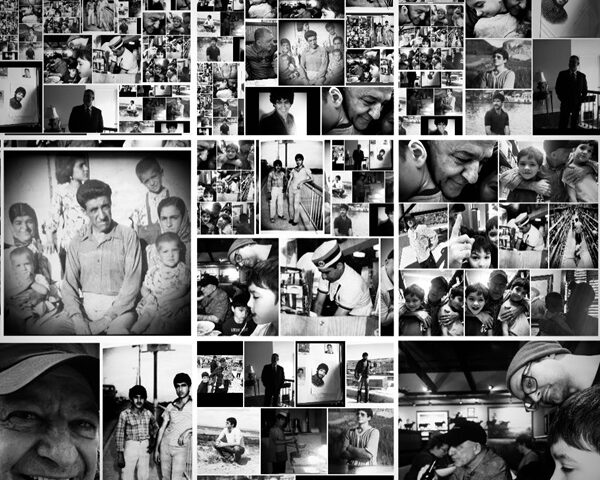
There are respectable entries to the Christmas canon that get some love from the general population. In 1963, A Christmas Gift for You from Phil Spector took from Leadbelly’s “On a Christmas Day” the distinction of best Christmas record by someone who’d killed somebody. It has maintained that distinction ever since. I welcome any corrections on that front. Similarly, The John Fahey Christmas Album offers a relaxed yet non-spineless backdrop for an informal holiday gathering. Minimally orchestrated but dynamically arranged, the album pales in comparison to Fahey’s best work, but certainly offers enough for holiday guests who more likely than not think “Fahey” is a metric measurement. Two other LPs of Christmas music by Fahey are also available, and offer more of the same.
But for every respectable contribution, there are heaps and heaps of dross.
Planning to kill yourself this holiday? Watched half of It’s a Wonderful Life with commercials before switching to the football game, but suddenly have this desire for a Christmas like they have on the telly? There are tunes for you too! For those needing a reason or a provocation, there are a wide variety of recordings available in multiple formats of Alvin and the Chipmunks singing every imaginable holiday song, or pretty much any other song that’s gained any traction in the past 40 years, to shake the most poised among us. Alvin and the Chipmunks, wielding doctored coat-hanger harmonies, have been committing pop cultural abortions longer than most readers of this article have been alive. Properly contemplated, they can make the most stable and optimistic persons doubt whether man’s inherent nature is good and whether redemption is possible.
For those who want to end it all, but don’t hate themselves quiiite that much, there’s the Metal Xmas compilation, which invalidates all claims by the metal community to the expression of real emotions. Listen to Dez Ferrara screech “Rudolph the Red-Nosed Reindeer” in his best ‘morning DJ outside a used car dealership’ voice.
For the person content to just wallow in self-pity, the best song is one fairly tangential in its relation to Christmas. In terms of tearjerkers, you can’t do much better than Tom Waits’ “Christmas Card from a Hooker in Minneapolis“. One of the best Waits tracks before his full transformation into Beefheart-ian carnival barker, the track initially threatens to fall into camp of “who can take that gravelly voice seriously singing ‘Charley, I’m pregnant?'”, but then accelerates its poignancy and takes rank firmly among Waits’ best narrative exercises.
Angry at your parents, didn’t get what you wanted last year? The Sonics share your pain.
Christmas songs operate under a yuletide rule 34, and I’m sure that if you can conceive of a possible relationship, grievance, or joke involving excrement, there is a corresponding Christmas song somewhere on the internet. Atheist? You’re covered. Confused Jew? How’s a Klezmer production of “The Nutcracker” sound? (insert your own foreskin joke here!). Described by its own promo copy as a “seminal” recording, this not a Nutcracker to be missed!
Many of the season’s dimmer musical lights creep out like mold from the less lit soggy recesses. There is little shortage of dinginess here. “I Saw Mommy Kissing Santa Claus“, “Dominick the Christmas Donkey“, lesser known low-points such as The Beach Boys’ “Santa’s Got an Airplane“. Surely there is a Jimmy Buffett recording out there somewhere. I care too little to seek it out. They fill our hearts with all the collective warmth of burning paint fumes. That they’ve been canonized, the first two anyhow, speaks to a mindlessness discussed with more depth ad nauseum elsewhere, so I’ll avoid it. Suffice it to say, these records don’t really sound so much like Christmas as waiting for prescriptions to be filled sometime in the vicinity of Christmas.
But, for those still relatively convinced there can be a majesty to well-worn holidays, options exist. While other albums might capture the ideals of Christmas, the ethnomusicological underpinnings of Christmas, and the speakers and subwoofers of mid-sized shopping malls and drug stores across the nation, only Christmas at C.P.H. gets the strange dinginess of the season, the sense of walking down streets Christmas Eve to see them empty as though after a hurricane, much spookier than Halloween for not being a put on.
The album, a souvenir recorded for attendees of the inpatient music therapy program at the children’s psychiatric hospital of University of Michigan, is a perfect accident. Every ostensibly wrong note endears or opens up new avenues of understanding. The theoretically amateurish quality of the mix allows for strange new dynamics and juxtapositions to emerge. I get chills every time I hear this album; it’s the reason people dig through crates, the secret hope of every insomniac aimlessly scanning their radio in the twilight hours.
Every track has the sort of ramshackle freshness that can only come from the hiccups of amateur performers. That this freshness seems to speak to genuine truths of the childhood experience of Christmas is nothing short of miraculous. On the incredible recording of “Do You Hear What I Hear?“, bells are hit with a stern rhythm, yet the timbre is of spoons rapping on glasses of tap water. The de-tuned quality of the brass speaks to the anxieties of the season, the authoritative quality of desiring parental approval. There are passages that genuinely scare me. Yet a sense of warmth is conjured with the same detuned brass on the very next track, a shortened version of “Good King Wencelas“. The brief running times of the tracks, and their wild tonal shifts, speak to the bipolar emotional consciousness of a child, especially at an excitable time like Christmas.
Yet the crown jewel of the album resides near the end. Their recording of “What You Gonna Call Your Pretty Little Baby?” is a wonder. The ethereal voices drift in and out of key, pitch, and the mix, as a fragile xylophone plays in the foreground. A dominant female voice has the haunting plainness of Sara Carter or Karen Dalton, but affects even more for her anonymity. It has the sort of beauty capable of taking a listener outside himself. The album reverses the dynamic of so many Christmas recordings that seem to exist only for the sake of recording and redistribution.
And it’s for albums like this that the concept of Christmas albums ought not to be just abandoned outright. Have a happy holiday season everyone!
Christmas at C.P.H. can be downloaded for free here, a site which has – in addition to the album – a fascinating discussion in the comments section among many of the participants on the album.





